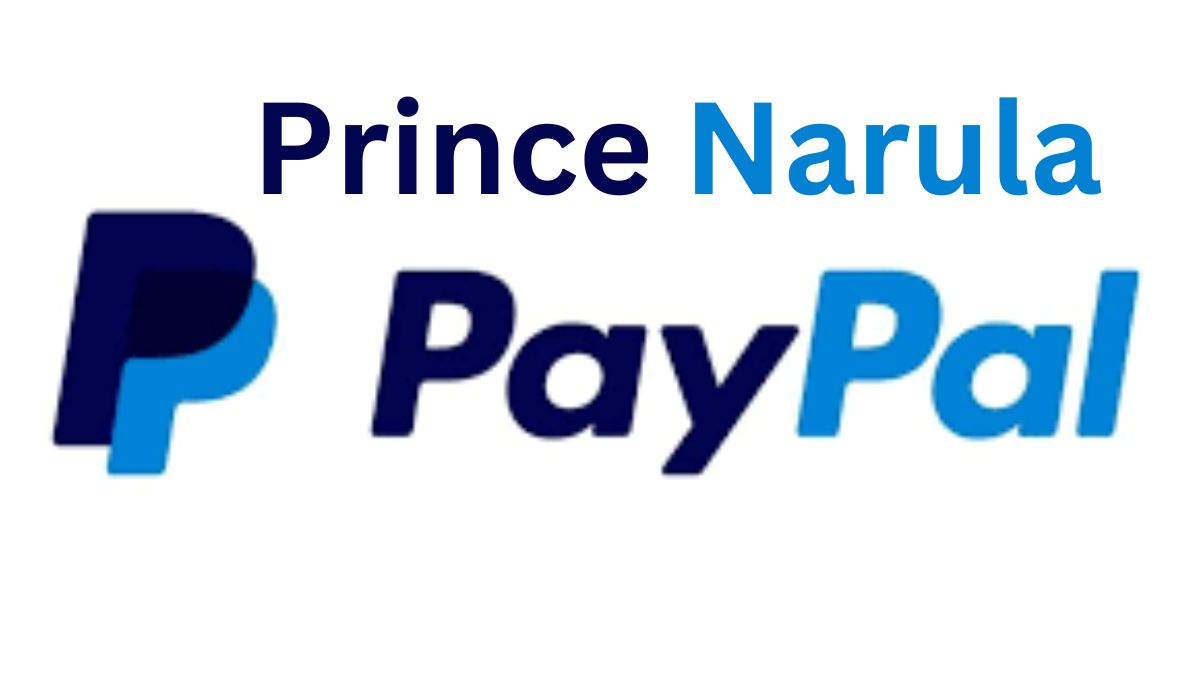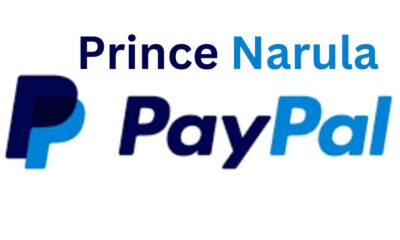BUSINESS
Understanding the Impact: A Deep Dive into Microsoft Layoffs

The world watched in shock as the news broke about Microsoft layoffs, a move that stirred conversations across industries. As one of the biggest tech giants, Microsoft’s decisions carry weight not just within its walls but throughout the entire job market. The ripple effects reach communities and families, prompting many to wonder: what led to this drastic measure? With thousands left grappling experience with uncertainty, it’s essential to delve into the reasons behind these layoffs and understand their broader implications. Let’s explore how this corporate shift affects employees, communities, and even other businesse navigating similar waters.
Reasons for Layoffs
Microsoft’s recent layoffs stem from a combination of factors. A primary reason is the shifting market dynamics. As technology evolves rapidly, companies must adapt quickly to stay competitive.
Another contributing factor is economic pressures. Rising inflation and fluctuating demand have forced many organizations, including Microsoft, to reevaluate their workforce needs.
Additionally, shifts in corporate strategy play a crucial role. Microsoft’s focus on cloud computing and AI has led to restructuring within certain departments. This often means reallocating resources rather than maintaining all existing teams.
The company aims for increased efficiency and productivity across its operations. Streamlining processes can lead to tough decisions about staffing levels but ultimately positions Microsoft for long-term growth in an ever-changing landscape.
The Impact on Employees and Communities
The Microsoft layoffs have sent shockwaves through the workforce. Thousands of employees suddenly found themselves without jobs, forcing them to confront an uncertain future.
For many, this was more than just losing a paycheck; it affected their sense of identity and purpose. Careers built over years evaporated almost overnight. The emotional toll can be profound, leading to stress and anxiety as individuals navigate job searches in a competitive market.
Communities also bear the brunt of these layoffs. Local businesses that relied on Microsoft’s workforce for revenue are now feeling the pinch. With less disposable income circulating, neighborhoods may experience downturns in sales and services.
Moreover, networking opportunities dry up when large companies downsize. The collaborative spirit often fostered within tech hubs diminishes as people scatter in search of new employment avenues. This disruption creates ripples that affect not just those laid off but entire ecosystems surrounding them.
Criticisms and Controversies Surrounding the Layoffs
The Microsoft layoffs have sparked significant backlash from various quarters. Critics argue that the decision reflects a lack of empathy towards employees during challenging economic times.
Many former workers expressed feelings of betrayal, especially after years of dedication to the company’s growth. The suddenness of the layoffs left numerous individuals without adequate support or time to prepare for their next steps.
Furthermore, industry analysts question whether such drastic measures were truly necessary. Some contend that tech giants should prioritize employee retention over short-term financial gains.
Public sentiment has also leaned toward companies being more transparent about their decision-making processes. This call for openness is amplified by social media campaigns highlighting personal stories of those affected.
Debates surrounding corporate responsibility in handling workforce reductions continue to gain traction, making this issue far more than just an internal matter for Microsoft.
How Other Companies Have Handled Layoffs
When companies face financial challenges, handling layoffs becomes a delicate task. Some firms opt for transparency. They communicate openly with employees about the reasons behind their decisions and the company’s future direction.
Others take a different approach. For instance, tech giants like Google and Amazon have offered generous severance packages to soften the blow for affected workers. This strategy not only helps maintain morale among remaining staff but also builds goodwill in the community.
Then there are those who implement voluntary separation programs. Companies such as Intel have allowed employees to choose whether they wish to leave, offering incentives that make leaving less painful.
Some organizations emphasize retraining programs post-layoff. By investing in skill development, they aim to assist displaced workers in finding new opportunities while demonstrating corporate responsibility.
Tips for Coping with Job Loss
Facing job loss can be daunting, but there are ways to navigate this challenging time. First, allow yourself to feel the emotions that come with it. Acknowledging your feelings is essential for healing.
Next, create a daily routine. Structure helps maintain a sense of normalcy and purpose during uncertainty. Set aside time for job searching while also integrating self-care activities.
Networking is crucial in such moments. Reach out to former colleagues or industry contacts who might provide leads or support. Attending virtual events can also open new doors.
Consider enhancing your skills through online courses or workshops. Investing in personal development boosts confidence and makes you more marketable.
Don’t hesitate to seek professional advice if needed. Career coaches can offer tailored strategies that align with your goals and aspirations, helping you find clarity amidst the chaos.
Conclusion: Lessons Learned from Microsoft’s Layoffs
The recent Microsoft layoffs have sent ripples through the tech industry and beyond. They serve as a reminder of the challenges that even established giants face in an ever-evolving market.
For employees, these changes can be jarring. The emotional toll cannot be understated; job loss affects not just individuals but families and communities as well. As companies shift their strategies, they must also consider how to support those impacted by such decisions.
Critics argue that there is often a lack of transparency in how layoffs are handled. Companies like Microsoft need to communicate more effectively with their workforce about why cuts are necessary and what steps will be taken afterward.
Other organizations may look for lessons here on navigating difficult economic landscapes while maintaining employee morale. Some firms adopt humane approaches during layoffs, offering severance packages or counseling services. These actions can ease the transition for affected workers.
Coping with job loss involves understanding one’s emotions and seeking support from family or peers. Networking becomes crucial at this time too; it opens doors for new opportunities down the line.
Microsoft’s experience highlights important considerations regarding corporate responsibility in tough times, how layoffs impact various stakeholders, and ways to approach future business challenges with compassion and foresight.
BUSINESS
Prince Narula Digital PayPal Success: Transforming Online Payments

Prince Narula Digital PayPal is not just a name; he’s a phenomenon in the world of entrepreneurship. Known for his charismatic personality and relentless drive, he has made waves across various industries. From reality TV star to business mogul, Narula’s journey is nothing short of inspiring. But what truly sets him apart is his innovative approach to digital payments.
As we dive into the realm of online transactions, it becomes evident that digital payment systems are reshaping how businesses operate today. This evolution has transformed commerce on a global scale, making financial exchanges faster and more secure than ever before.
Among the frontrunners in this space stands PayPal—a platform that revolutionized how we think about money transfer and online shopping. With Prince Narula at the helm of its growth strategy, PayPal has become synonymous with convenience and security.
Join us as we explore this fascinating intersection between Prince Narula and digital payments through PayPal while uncovering stories of success from businesses leveraging these advancements for their growth.
The rise of digital payments and its impact on businesses
The rise of digital payments has transformed how businesses operate. With the click of a button, transactions are completed seamlessly. This convenience caters to today’s fast-paced lifestyle.
Businesses have embraced this shift, expanding their reach beyond geographical boundaries. Customers can now purchase products and services from anywhere in the world. The ease of digital payment platforms has opened up new markets for entrepreneurs.
Security is another key benefit driving adoption. Advanced encryption technologies protect sensitive information during transactions. This trust encourages more consumers to shop online without hesitation.
Moreover, businesses enjoy quicker cash flow with instant transactions. Traditional banking processes often delay fund availability, but digital payments streamline this aspect significantly.
As consumer preferences evolve towards contactless solutions, companies must adapt or risk losing relevance in a competitive landscape. Embracing these changes ultimately leads to growth and innovation within various industries.
The birth of PayPal and its growth in the digital payment market
PayPal was born in December 1998 as Confinity, initially focusing on software for handheld devices. The vision quickly shifted to developing a digital wallet, setting the stage for what would become a payment revolution.
In early 2000, Confinity merged with X.com, an online banking company founded by Elon Musk. This partnership ignited rapid growth and innovation within the digital payment landscape. By March 2001, the newly rebranded PayPal started gaining traction among eBay users looking for secure transaction methods.
As e-commerce flourished in the early 2000s, so did PayPal’s popularity. It became synonymous with online payments, making it easier than ever for individuals and businesses to conduct transactions across borders effortlessly. With strategic partnerships and an unwavering commitment to security, PayPal solidified its position as a leader in this fast-evolving market.
Prince Narula’s role in transforming PayPal into a global leader
Prince Narula Digital PayPal has become a pivotal figure in the digital payment landscape, particularly with his contributions to PayPal. His innovative mindset and strategic vision helped elevate PayPal’s status in an ever-competitive market.
By focusing on user experience, Narula implemented features that simplified transactions for both merchants and consumers. This approach not only increased customer satisfaction but also built trust among users worldwide.
His leadership style fostered collaboration across teams, which drove creative solutions to complex problems. Under his guidance, PayPal expanded its services swiftly while adapting to emerging trends in technology.
Narula’s understanding of diverse markets allowed him to tailor strategies that resonated globally. He recognized the need for flexibility as businesses transitioned online, ensuring that PayPal remained relevant amid rapid changes in consumer behavior.
This adaptability positioned PayPal as a frontrunner in digital payments, making it the go-to platform for millions around the world.
Success stories of businesses using PayPal for online payments
Many businesses have thrived by integrating PayPal into their payment systems. For instance, a small artisan shop saw sales soar after adding this digital option. Customers appreciated the ease of checkout, leading to repeat purchases and glowing reviews.
A tech startup also reaped benefits from using PayPal for subscriptions. Their streamlined billing process reduced cart abandonment rates significantly. Users found it convenient to manage payments without hassle.
Even global giants leverage PayPal’s capabilities. An online clothing retailer reported higher conversion rates after implementing one-click payments via PayPal’s service. Shoppers enjoyed quick transactions, which kept them coming back for more.
Local restaurants embraced contactless ordering with PayPal during challenging times. This adaptability allowed them to maintain revenue while providing safety for customers and staff alike. These success stories highlight the versatility and reliability that make PayPal a preferred choice in the ever-evolving business landscape.
The future of digital payments and the potential impact on businesses
The future of digital payments is on the brink of a revolution. As technology advances, we can expect even more seamless transactions. The rise of artificial intelligence and machine learning will personalize payment experiences for consumers.
Businesses that embrace these innovations will likely see increased customer loyalty. Faster checkouts and enhanced security features can create frictionless shopping environments. Companies adopting digital wallets and cryptocurrency options may attract tech-savvy clientele eager for modern solutions.
Moreover, cross-border transactions are becoming simpler with emerging platforms. This opens doors to international markets previously thought inaccessible for small businesses.
With mobile commerce continuing its upward trajectory, businesses must adapt or risk falling behind competitors who do. Staying ahead in this evolving landscape means integrating new technologies strategically while understanding consumer preferences deeply.
Conclusion
Prince Narula’s journey in the realm of digital payments has been nothing short of remarkable. His innovative mindset and entrepreneurial spirit have played a pivotal role in shaping PayPal into a powerhouse for online transactions. By embracing new technologies and advocating for seamless payment experiences, he has not only transformed how businesses operate but also how consumers engage with them.
As digital payments continue to evolve, Prince Narula’s influence will remain significant. The success stories emerging from businesses utilizing PayPal showcase its capacity to empower entrepreneurs and streamline operations across various sectors. With ongoing advancements in technology, the landscape of online payments is set to change further, promising exciting opportunities for future growth.
Narula’s efforts highlight the importance of adaptability in an ever-changing market environment. Through his vision and leadership, he contributes significantly to making digital payments more accessible and efficient for everyone involved. The pathway he’s forged serves as inspiration for aspiring entrepreneurs aiming to navigate this dynamic arena successfully.
BUSINESS
Exploring the Legacy of Dr. Dick McDonnell: A Kansas City Icon

Dr. Dick McDonnell was more than just a name in the medical community; he was a beacon of hope and inspiration for many in Kansas City. His journey from humble beginnings to becoming a respected physician encapsulates the very essence of dedication, compassion, and service. As we explore his remarkable legacy, it becomes clear that Dr. McDonnell’s influence extends far beyond the walls of hospitals and clinics. He touched lives through his medical expertise and philanthropic spirit, shaping not only individual destinies but also the future of healthcare in our beloved city. Join us as we delve into the life of this Kansas City icon and discover how his enduring impact continues to resonate today.
Early life and education of Dr. McDonnell
Dr. Dick McDonnell was born in Kansas City, where his journey began with humble roots. Growing up in a close-knit family, he learned the value of hard work and dedication early on.
His academic journey took him through local schools, where he consistently excelled. A natural curiosity about science led him to pursue medicine at a prestigious university.
During those formative years, Dr. McDonnell developed not just intellectual prowess but also a deep sense of empathy for others. He volunteered at community health initiatives, which solidified his commitment to serving people.
These experiences shaped his character and fueled his ambition to become a physician dedicated to improving lives in Kansas City and beyond. With unwavering determination, he set out on a path that would ultimately lead him to make significant contributions in the medical field.
Contributions to the medical field
Dr. Dick McDonnell made significant strides in the medical field during his illustrious career. His expertise as a physician brought innovative practices to Kansas City hospitals, enhancing patient care.
He was particularly renowned for his work in surgical techniques. Colleagues often praised him for pioneering methods that improved recovery times and reduced complications. This commitment to excellence inspired many young doctors.
Additionally, Dr. McDonnell actively mentored aspiring medical professionals. He believed in sharing knowledge and fostering growth within the healthcare community. His guidance helped shape future leaders in medicine.
Outside of surgery, he championed public health initiatives aimed at educating communities about preventive care. Through workshops and outreach programs, he emphasized the importance of early detection.
His dedication left an indelible mark on both patients and practitioners alike, solidifying his role as a transformative figure in Kansas City’s healthcare landscape.
Philanthropic efforts and impact on the community
Dr. Dick McDonnell was more than a distinguished medical professional; he was a pillar of support for the Kansas City community. His philanthropic efforts were extensive and targeted those in need, ensuring that healthcare access wasn’t just a privilege but a right.
He established various initiatives aimed at improving health education and wellness programs. By collaborating with local organizations, he addressed pressing issues like mental health awareness and preventive care.
His compassion extended beyond medicine. Dr. McDonnell championed youth programs that provided scholarships and mentorship opportunities, empowering the next generation to dream big.
The impact of his generosity is still felt today through numerous projects funded by his contributions. Community centers offer free workshops on healthy living, while educational institutions carry forward his passion for learning with resources designed to uplift students from all backgrounds.
Legacy through the Dick McDonnell Memorial Scholarship Fund
The Dick McDonnell Memorial Scholarship Fund stands as a testament to Dr. Dick McDonnell’s unwavering commitment to education and community service. Established in his honor, this fund provides financial support to aspiring medical students from Kansas City.
Each year, it empowers young individuals who strive to make a difference in healthcare. The scholarship not only alleviates the burden of tuition but also inspires recipients to follow in Dr. McDonnell’s footsteps.
Through this initiative, his legacy lives on, fostering new generations of compassionate healthcare professionals. The impact is evident as these scholars engage with communities and contribute their skills where they’re needed most.
By investing in education, the fund helps ensure that Dr. McDonnell’s vision for accessible healthcare persists long into the future. Each awarded scholarship is a step toward cultivating leaders dedicated to improving health outcomes for all Kansans.
Honoring Dr. McDonnell’s memory through annual celebrations and events
Each year, Kansas City comes together to honor Dr. Dick McDonnell’s remarkable legacy through vibrant celebrations and events. These gatherings serve as a heartfelt reminder of his contributions and the profound impact he had on countless lives.
From charity runs to community picnics, each event is infused with camaraderie and gratitude. Families share stories about Dr. McDonnell’s compassion, while local leaders highlight his influence in medicine and philanthropy.
The annual gala draws crowds eager to support initiatives that reflect his values. Proceeds often benefit health programs or scholarships aimed at nurturing future healthcare professionals.
Art exhibitions featuring local talents add a cultural flair to these festivities, ensuring everyone can participate in honoring this beloved icon. Each celebration reinforces the bond between the community and Dr. McDonnell’s enduring spirit, keeping his memory alive for generations to come.
Conclusion: The lasting impact of Dr. McDonnell’s legacy in Kansas City
Dr. Dick McDonnell’s legacy in Kansas City is profound and multifaceted. His dedication to medicine shaped countless lives, influencing both patients and aspiring healthcare professionals. The scholarship fund established in his name ensures that his commitment to education continues, providing opportunities for future generations.
Moreover, the annual celebrations honoring Dr. McDonnell serve as a reminder of the impact one individual can have on a community. These events foster connections among those who were touched by his work and inspire new acts of kindness and service.
As Kansas City moves forward, Dr. Dick McDonnell’s contributions remain etched in its history. His spirit lives on through the stories shared by friends, family, colleagues, and students alike—all united by the values he championed throughout his life: compassion, excellence in healthcare, and unwavering support for others.
Dr. McDonnell may no longer be with us physically; however, his influence endures deeply within the heart of Kansas City—a beacon guiding current and future leaders toward making meaningful contributions to society.
BUSINESS
Eldernode: A Comprehensive Guide to Affordable and Reliable VPS Hosting

Having a dependable and high-performing hosting solution is essential for individuals, developers, and businesses in today’s digital environment. Virtual Private Server (VPS) hosting has become a popular option because it strikes a mix between control, scalability, and affordability. Among the several suppliers on the market, Eldernode is a reputable brand that provides premium VPS hosting services at affordable costs.
Eldernode is thoroughly examined in this post, including its features, advantages, costs, and reasons why it can be the ideal hosting option for your requirements. This article will help you understand what Eldernode has to offer, whether you’re a developer seeking a stable environment, a company looking for dependable hosting, or an individual exploring VPS options.
What is Eldernode?
Leading virtual private server (VPS) hosting company Eldernode specializes in Windows and Linux-based VPS solutions. The business is renowned for its great customer service, reasonably priced services, and good performance. Eldernode provides a range of hosting packages, such as dedicated servers, cloud VPS, and RDP (Remote Desktop Protocol) services, that are suited to various requirements.
Key Features of Eldernode
-
Multiple Operating System Options
-
Linux (Ubuntu, CentOS, Debian, etc.)
-
Windows Server (2012, 2016, 2019, 2022)
-
-
High-Speed SSD Storage
-
Faster data access and improved performance compared to traditional HDDs.
-
-
Global Server Locations
-
Data centers in the USA, UK, Germany, France, Netherlands, and more for low-latency connections.
-
-
Full Root & Admin Access
-
Complete control over your server environment for customization.
-
-
DDoS Protection
-
Enhanced security to prevent malicious attacks.
-
-
24/7 Customer Support
-
Responsive support team via live chat, tickets, and email.
-
-
Affordable Pricing
-
Competitive rates with flexible payment options.
-
Why Choose Eldernode for VPS Hosting?
1. High Performance and Reliability
Eldernode uses enterprise-grade hardware with SSD storage, powerful CPUs, and ample RAM to ensure optimal performance. Whether you’re hosting a website, running applications, or managing a game server, Eldernode provides 99.9% uptime for uninterrupted service.
2. Scalability
As your needs grow, Eldernode allows you to upgrade resources (CPU, RAM, storage) seamlessly without downtime. This makes it an excellent choice for startups and growing businesses.
3. Security Features
Security is a top priority for Eldernode. Features include:
-
DDoS Protection to mitigate attacks.
-
Firewall configurations for added security.
-
Regular backups to prevent data loss.
4. User-Friendly Management
Eldernode provides easy-to-use control panels like SolusVM, Virtualizor, and Webuzo, making server management accessible even for beginners.
5. Affordable Pricing
Compared to competitors, Eldernode offers cost-effective VPS plans with no hidden fees. Discounts are often available for long-term commitments.
Eldernode VPS Hosting Plans
Eldernode offers a variety of VPS hosting plans to suit different requirements:
1. Linux VPS Hosting
-
Starting at $5.99/month
-
Supports Ubuntu, CentOS, Debian, Fedora, etc.
-
Full root access for customization.
2. Windows VPS Hosting
-
Starting at $12.99/month
-
Supports Windows Server 2012/2016/2019/2022
-
Ideal for RDP, Forex trading, and enterprise applications.
3. RDP (Remote Desktop Protocol) VPS
-
Starting at $14.99/month
-
Optimized for remote desktop access, trading bots, and multitasking.
4. Forex VPS
-
Low-latency servers for trading platforms like MetaTrader 4/5.
-
Starting at $15.99/month.
5. Game Server Hosting
-
Supports Minecraft, Counter-Strike, ARK, and more.
-
Starting at $9.99/month.
How to Set Up a VPS on Eldernode
Setting up a VPS with Eldernode is straightforward:
-
Choose a Plan – Select a Linux or Windows VPS based on your needs.
-
Select a Data Center – Pick a location closest to your audience.
-
Configure OS & Applications – Install your preferred OS and software.
-
Access & Manage – Use SSH (Linux) or RDP (Windows) to control your server.
-
Deploy Your Project – Host websites, apps, or game servers effortlessly.
Eldernode vs. Competitors
| Feature | Eldernode | DigitalOcean | Vultr | Linode |
|---|---|---|---|---|
| Starting Price | $5.99/mo | $4/mo | $2.5/mo | $5/mo |
| Windows VPS | ✅ Yes | ❌ No | ✅ Yes | ❌ No |
| DDoS Protection | ✅ Yes | ❌ No | ✅ Yes | ✅ Yes |
| Global Locations | ✅ Multiple | ✅ Multiple | ✅ Multiple | ✅ Multiple |
| 24/7 Support | ✅ Yes | ✅ Yes | ✅ Yes | ✅ Yes |
While competitors like DigitalOcean and Linode are popular, Eldernode stands out with Windows VPS options, affordable Forex VPS, and strong security features.
Customer Reviews and Testimonials
Eldernode has received positive feedback from users for:
-
Reliable uptime and performance
-
Responsive customer support
-
Affordable pricing with no hidden costs
Many users highlight Eldernode as a great alternative to expensive cloud providers like AWS and Azure.
Conclusion
Eldernode is an excellent choice for:
-
Developers needing a customizable VPS.
-
Businesses looking for scalable hosting.
-
Traders requiring low-latency Forex VPS.
-
Gamers hosting private servers.
With affordable pricing, strong security, and 24/7 support, Eldernode is a top contender in the VPS hosting market.
Final Recommendation
Eldernode is a good option if you require a high-performance, reasonably priced VPS that supports Linux or Windows. Try their services with a low-cost plan to see for yourself how reliable they are.
-

 BUSINESS2 months ago
BUSINESS2 months agoPrince Narula Digital PayPal Success: Transforming Online Payments
-

 ENTERTAINMENT2 months ago
ENTERTAINMENT2 months agoHighlights and Analysis: WWE SmackDown Episode 1491 Recap
-

 ENTERTAINMENT1 year ago
ENTERTAINMENT1 year agoWWE SmackDown Episode 1488 Delivers a Knockout Performance
-

 videos11 months ago
videos11 months agobad hair day episode 1 a sore subject
-

 LAW11 months ago
LAW11 months agoAn Intriguing Journey into the Life of Jeff Tietjens
-

 HOME1 year ago
HOME1 year agoMaximizing Basement Space: Design Tips from Top Basement Renovation Contractors
-

 CELEBRITY2 years ago
CELEBRITY2 years agoDiscovering Edgardo Canales The Life and Journey of Adria Arjona’s Husband
-

 News2 years ago
News2 years agoNews JotechGeeks Takes the Spotlight in Tech News World
